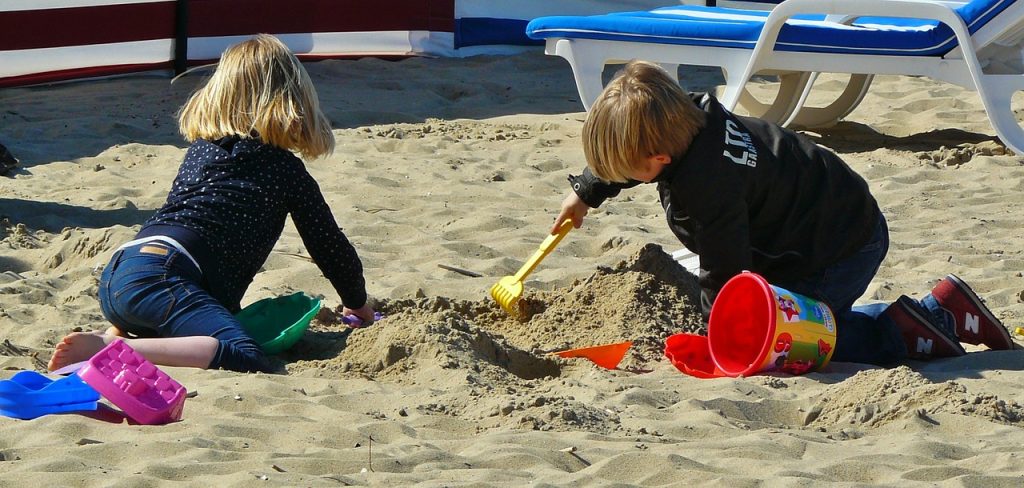With the school summer holidays almost upon us, it’s the time of year where most children are desperate to play outside in the sun. It’s also the time of year where parents and nannies need to pay extra care and attention in order to prevent things like:
- Sun-stroke
- Sunburn
- Water accidents
- Insect bites/stings
To help put your mind at ease and to give your children a fun and safe summer, we’ve put together this guide to help you keep your kids safe in the sun.
- Prevention is better than a cure
Taking precautions to prevent accident or injury is a much better idea than having to seek out medical assistance. Some summer injuries and accidents can be so severe they lead to hospital treatment, whilst some can even be life-threatening. Here’s a quick list of safety precautions you can take to help keep your kids safe this summer, no matter what they’re doing:
- Sun-safety – Before your children go out to play, be sure to apply a liberal coat of sunscreen that has an SPF factor of 30 or higher. The higher, the better! In high temperatures, you’ll need to reapply sunscreen every 30-60 minutes, or immediately after being in water. It’s also important to provide hats, sunglasses and protective clothing to reduce the risk of sunburn when the sun is at its hottest.
- Protective gear – when using bicycles or scooters, children should always wear a properly fitted helmet, brightly coloured clothing and they should never ride on the road. Instead, teach them to stick to paths and cycle lanes. Use this opportunity to teach them about cycling rules and road safety.
- Do not leave children in hot cars – We cannot stress this point enough. We’ve all seen the warnings about leaving dogs in hot cars and children are no different. In just 10 minutes, the temperature in a car can rise by 15 degrees, and can be a common cause of heatstroke. This rule is simple: Never leave your child alone in a car.
- Rules of the road & stranger danger – If you haven’t broached this subject before, now is the ideal time. Teach your child how to use pedestrian crossings, to look both ways before crossing and to use the ‘stop, look & listen’ method. You can help make your child more visible to drivers by dressing them in brightly coloured clothing. Now is also the perfect time to warn your child about the dangers of talking to strangers. Make it clear to them that they should never go anywhere with someone they don’t know, even if they seem nice and friendly.
- Don’t swim alone – You should never leave young children alone whilst swimming or playing with water toys, especially children who don’t swim well. Stick to them like glue and pack away or empty all water toys and pools once your child is finished playing.
- Safety at the playground – Playgrounds can be great fun if used properly and if they are well maintained. Be sure to check your playground for damaged or broken equipment, litter or glass. Be aware of over-heating, as some playground equipment can become extremely hot, causing burns to children’s skin. It’s also a good time to teach your child to use the equipment properly i.e. sitting, not standing, on the swings and going down the slide feet first.
- Stay hydrated
Children can quickly become dehydrated when playing in hot temperatures, especially if they are spending the majority of their time outside, doing various activities. Encourage your child to drink cool water regularly and send them out with a bottle of water each time they leave the house.
- Discuss the importance of staying safe
Talk to your children about why safety is important and why they need to take care when playing out in the sun, especially when they’re on their own. Ask them questions like, ‘Why should you wear sunscreen when you’re outside?’ or ‘Why should you never run near a pool?’ Most children will know the answers to these questions and by answering you can help to reinforce the importance of your safety rules. It’s also a good opportunity to educate them if they aren’t sure why you insist on doing something like wearing a hat outside.
- Share your rules with other parents/carers
If your child will be spending some time at the house of another child or with a nanny or childminder, it’s important that you share your safety rules with them to help them ensure that your child is always safe, even when you’re not around.
What are your top summer safety tips for kids? We’d love to hear from you!

